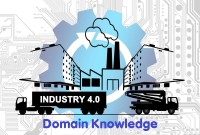- Home
- Business Processes
- Industry Knowledge
- Aerospace Industry
- Automotive Industry
- Banking Domain
- BFSI Industry
- Consumer/ FMCG Industry
- Chemicals Industry
- Engineering & Construction
- Energy Industry
- Education Domain
- Finance Domain
- Hospitality Domain
- Healthcare Industry
- Insurance Domain
- Retail Industry
- Travel and Tourism Domain
- Telecom Industry
- Leadership Skills
- eLearning
- Home
- Leadership Skills
- Career Management
- Early Career Advice you Need
Early Career Advice you Need
What are some of the smartest things you can do in your early career that can help you become successful? The more you challenge yourself early on and gain a multitude of experiences and skills, the more successful you'll become down the road. In this article, we have compiled our best career advice including tips from career and recruitment experts. Here are some important tips to keep in mind as you plan your education and training, your career, and your life.
Education – Build Your Knowledge:
Nearly every job requires the basic communication and math skills you learn in high school. Compared to workers at higher education levels, high school dropouts have more difficulty getting and keeping jobs. They also have lower earnings throughout their lives. Consider continuing your education. The more education you get, the higher your earnings are likely to be. On average, high school graduates earn more than high school dropouts. Those who receive postsecondary training earn more than high school dropouts and graduates. And workers who have bachelors or higher degrees usually earn more than those with less education. Having a good professional education makes it easy to get entry to your dream career when compared to someone without it.
Most people have this impression that the role of professional degree ends once you get the job however in practical life your educational credentials are considered and play an important role in your career advancements. Whenever there is a choice between two employees with similar skillsets and experience, the one with higher levels of education wins the promotion.
Research Career Information:
A small investment of your time will help you make an informed career choice that could pay dividends throughout your life. There are hundreds of occupations, so choosing and planning a career is a lot more complex than it may appear. The ideal career for you might be something you’ve never heard of or thought about.
Plan your Career
Seek out information about occupations with favorable career prospects, high earnings, and other attributes that are important to you. Having a solid career plan can affect your future prospects more than your level of education.
Develop Computer Competency:
Take advantage of every opportunity to acquire computer proficiency. Regardless of whether you continue your education beyond high school, chances are that you will need at least minimal computer skills to do your job. Computer proficiency is not a perquisite only for the professionals that want to pursue a career in Information Technology, rather now days it touches each and every profession.
Know Your Interests:
You have to know what you do want and, more importantly, what you need. Pursuing a career, you want to achieve fulfillment and in order to do that, you must have a clear understanding of your unique personal and professional interests. It takes a lot of self-reflection and this video can help you shortlist your top 5 values. Value your personal interests and abilities. You shouldn’t shy away from a career that interests you just because it’s competitive, go for it! Just be prepared for the challenges that may lie ahead.
Learn from Others:
Many of us are afraid to ask for help in spite of being surrounded by so much experience and knowledge. Reach out to your family, friends and colleagues and start having conversations about your career plans, your strengths and about developing your weaknesses. The people in your support network are always willing to listen to you and share their stories with you. It is just a matter of reaching out to them with your career questions and you might get insights you were not aware of already. Listen closely.
And, should you find that a more objective point-of-view is what you need, consider working with a professional career coach. We’re trained to remain (relatively) neutral, present ideas with deep democracy, and help you clarify and act on what you already know—the feelings and ideas you’ve been burying.
Shed the Doubts:
Once you finalize your career dreams or wishes that you want to come true, you might realize that not everyone understands what you want to accomplish in your career. What do you do when in your heart you know the right next move for your career, but you are not getting the support you need to reach your goal?
While you may have doubts that your idea will materialize, you won't know until you try, so shed those doubts and start working on it. Seek out more information; understand the skills, education, behaviors, exposure, training etc. needed to accomplish your dream.
Gain Experience Early:
Learning by doing is a great way to approach a prospective career. Internships, part-time jobs, and volunteer work are some examples of ways to get hands-on experience while still in school. Not only do these opportunities help you make smarter career decisions, but they may also help you get hired after graduation; most employers value work-related experience.
Keep Learning:
Take every opportunity to learn new skills. The more you upgrade your skills to the constantly changing world of work, the more likely you—and your career—will adapt along with it.
Work at it:
Finding career fulfillment isn’t a quick or easy journey. It takes time, effort, dedication, and most importantly passion to build a lifelong engaging, and fulfilling career. Engage yourself and put yourself into the process. Be active and learn this fact as quickly as possible that you and only you are responsible for working towards your career. Your career can be limited only by one limitation and that is YOU. Don’t expect that things will change without significant work on your part. You can have everything you need; it’s only a matter of making it happen. No advice is ever good enough unless you have the burning desire and if you lack it, you need to ignite that burning desire to get to your dream career.
Explore Technofunc Toolkit
Our curriculum is designed to equip a person to leverage technology as well as learn critical business application processes along-with system integrity and security, systems audit, project management, and other key methods widely used today that helps in the integration of business processes and practices in tune with the requirements that are driven both by business, globalization and legislature. We help you gain expertise in both technical and functional skills, which when applied collectively comprise of professional competence and excellence.
Given below are the different technofunc resources to start building your technical leadership skills:
Build Domain Skills
- Aerospace Domain
- Automotive Domain
- Banking Domain
- BFSI Domain
- Consumer / FMCG Domain
- Chemicals Domain
- Engineering and Construction Domain
- Energy Domain
- Education Domain
- Financial Management & Business Dynamics
- Global Markets Domain
- Hospitality and Leisure Domain
- Healthcare Domain
- Insurance Domain
- Technology Domain
- Retail Domain
- Travel Domain
- Telecom Domain
Related Links
You May Also Like
-
Understanding Corporate Strategy
Management outlook and procedures have been revolutionized by more and more innovations over the recent years. It is no longer possible to follow traditional approaches to develop your organization's direction, its management as well its effectiveness. Senior managers need to be good decision-makers. In this section, we introduce concepts for strategy, strategic planning, strategic leadership, their exact meaning and associated terms, and how to use them.
-
Building Your Domain Knowledge
Domain knowledge from a career management perspective encompasses the understanding of industry dynamics and business processes of the target operational area. Domain expert exhibits clear knowledge in the respective industry and understands the industry concepts in general. It is always recommended to best highlight your exposure of domain in your resume or cover letter. TechnoFunc provides you with the best tutorials to gain domain knowledge in a large number of industries and business areas.
-
Functional skills are the core competencies that can be transferred to different work areas like understanding of finance is independent and a finance expert can comfortably adapt to a manufacturing or service industry. Functional skills are obtained by understanding the various processes and the principles applicable to a business function. Functional experts are in great demand as they are specialists and required to manage the business processes like human resources, operations, or finance.
-
Time management is the process of planning and exercising conscious control of time spent on specific activities, especially to increase effectiveness, efficiency, and productivity. The best time management techniques improve the ways you work. Time management refers to managing time effectively so that the right time is allocated to the right activity. Learn more about the five steps for effective time management viz. study, identify, analyze, decide, and implement.
-
Narrative leadership is interpreted as the leader who aspires to construct leadership by telling stories. Leadership is a task of persuasion, of winning people’s minds and hearts. Storytelling is thus inherently suited for the task of leadership. Learn about the narrative leadership style and how to use this style to inspire and motivate followers or to manage change.
-
Improving Skills & Competencies
Whenever you are looking for a job or having your yearend discussion with your manager, two terms generally referred to be “Skills” and “competencies”. Today success in a career is an outcome of having essential competencies and building required skills. Skills could be a major distinguishing factor for you to move up on the career ladder and jump from one role to another. Leadership skills when combined with relevant domain and functional expertise can transform your entire career growth and help you have a fulfilling career.
-
A good leadership style is something that every effective leader must have in order to succeed, but identifying what that entails or does not entails might be difficult to understand. Most of the research on leadership focuses on the exemplary, best practices, and positive attributes of effective and successful leaders. This article talks about a new approach to learn leadership using lessons from bad leadership. That is the lessons to be learned by examining leaders who have not effectively exercised their power, authority, or influence.
-
In the early years, most jobs were skill-oriented, and with the development in lifestyles and technology, the current jobs are knowledge-oriented jobs such as management, accountants, design, or computing. Career paths encompass varied forms of career progression and this article discusses how we can build a fulfilling career? Learn here about career paths, industries, and opportunities for gaining experience in the field of your choosing.
-
Importance of Technical Skills
Today’s business environment is complex and changing at a fast pace. Tough business problems require technical expertise to create cost-effective & sustainable solutions. All industries need some kind of technical skills to accomplish complex actions, tasks, and processes relating to computational and physical technology as well as a diverse group of other enterprises. The acquisition of advanced technical skills requires specific education certification or training, often with practical hands-on learning.
-
Evaluating Your Career Interests
Want to find out what you are best at when it comes to proactively building your career? What are your real interests? The first step in career planning is reflecting. Reflecting upon your own self, to be more self-aware, and then following your dreams with both your heart and mind. Here is an opportunity to begin exploring yourself. At the end of the process, you will have a far better understanding of your desires than you have currently.
Explore Our Free Training Articles or
Sign Up to Start With Our eLearning Courses

About Us
Learning
© 2023 TechnoFunc, All Rights Reserved










